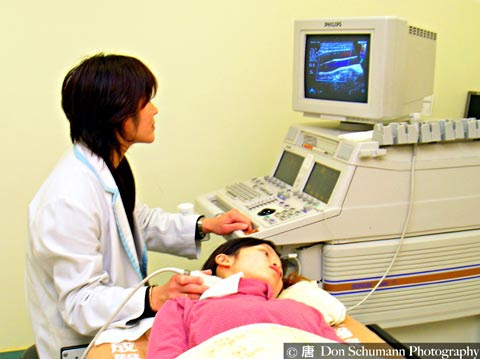China's HIV-Like Virus

I had to fight so hard to cope with my Nosocomephobia to shoot in a hospital
This new "HIV-like" virus is probably not easily transmitted sexually, but is easily transmitted through kissing, which often takes place during sexual contact. This is why people who catch this virus mistakenly think they have caught a sexual disease
But in fact, once someone has caught this pathogen, it spreads to others, like friends and family, by ordinary household or workplace contact. So this pathogen is not to be considered a sexually transmitted pathogen, even though it is often caught from kissing during sex with a new partner (and is often caught from sex — even protected sex — with a prostitute, according to accounts from China)
In a subset of individuals, this new "HIV-like" pathogen appears to cause a significant overall deterioration in health, as well as the very sudden onset of powerful mental state changes, such as extreme anxiety disorder, anhedonia, and suicidal ideation.
This pathogen transmits via saliva, and nearly always infects all members of a household within a few months (and often within weeks), once one family member has caught the pathogen and brought it into the home. About 10% or so of the individuals who catch this new "HIV-like" virus become ill, but most people who catch it do not manifest any significant symptoms (this is not unusual for viruses: poliovirus for example, though it paralyzed a small percentage of people, was completely asymptomatic in most individuals).
The incubation period of this new "HIV-like" pathogen is around 2 to 3 days (this is the time it takes for the first symptoms of this disease to appear after the initial exposure to the pathogen). Around 7 to 14 days after the initial exposure to the pathogen, many of the disease symptoms will have manifested.
Note: the new "HIV-like" virus in China detailed on this website is not to be confused with a different new syndrome in Thailand and Taiwan having the same "HIV-like" name. This HIV-like disease from Thailand is a very rare autoimmune condition that is not contagious. This Thai syndrome was first observed in 2004, and the NIH in the US has been studying it since 2005. (This Thai condition is caused by the body making autoantibodies that disable interferon gamma, an important part of the immune system).









Comments
Post a Comment